People Prevent Police From Arresting Woman Protesting Hijab In Iran
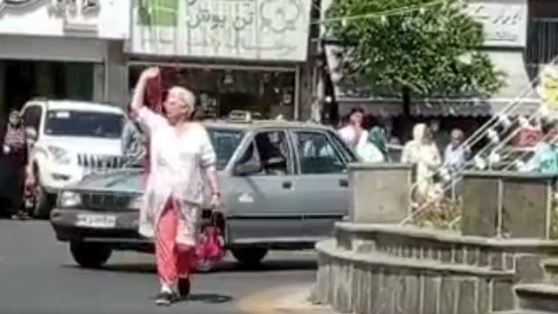
Amid Iran’s a hash crackdown on ‘bad-hijab women’ and a growing resistance, a woman in northern Iran removed her headscarf in public but people did not allow police to arrest her.

Amid Iran’s a hash crackdown on ‘bad-hijab women’ and a growing resistance, a woman in northern Iran removed her headscarf in public but people did not allow police to arrest her.
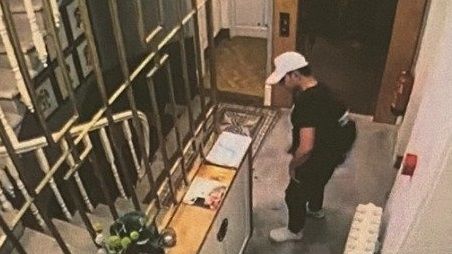
Turkey was aware that a team of Iranian agents had entered the country in June to assassinate Israelis, before they were arrested, a local newspaper reported.
Turkish-language Sabah Daily published more details on Sunday about the Iranian plot three weeks after Turkey’s security agencies nabbed 8 Iranian nationals in three different locations in Istanbul.
The agents, Sabah says, were allegedly sent by a unit of Iran’s Revolutionary Guard (IRGC), apparently to avenge a mysterious series of killings and deaths among its personnel in Iran in May and early June. Iranian blamed Israel for the incidents, as it became more apparent that it had penetrated various domains of government institutions.
Since July 2020, a series of spectacular attacks began against Iran’s well-defended nuclear and weapons development sites, as well as key individuals, such as top nuclear official Mohsen Fakhrizadeh in November 2020. Hackings, mysterious fires, sinking of ships disruption of infrastructure continued until the daylight assassination of a key official of Colonel Hassan Sayyad-Khodaei on May 22 in Tehran. The man was reportedly the commander of a secretive unit tasked with terror operations abroad. The Iranian president Ebrahim Raisi immediately vowed revenge.
It is not clear exactly when and how the Iranian agents entered Turkey and congregated in Istanbul. Some might have been members of a ‘sleeping cell’. But Sabah reports that some checked into the same hotel where Israel’s former Consul General in Istanbul, Yosef Levi Sfari and a group of tourists from Israel were staying.
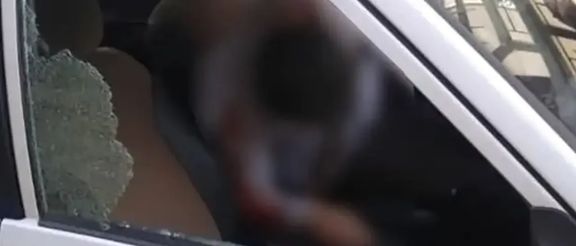
Being aware of a dangerous situation developing, Turkish authorities quietly moved the Israelis to another hotel, Sabah said, but Israeli media at the time spoke of close coordination between Israeli and Turkish security.
In fact, Israel might have been the one that tipped off Turkish intelligence about the Iranian plot. In late May, Israel warned its citizens to stay away from Istanbul and the warning was repeated in the first two weeks of June. By mid-June, the news about the foiled Iranian plot emerged in Israeli media, that also claimed Ankara had warned Tehran not to conduct any such operations on its soil, but it has so far not publicly accused Iran of planning terror attacks.
However, a planned visit by Iranian foreign minister Hossein Amir-Abdollahian was postponed in mid-June amid widespread speculations that the cancellation was related the ongoing controversy over the terror plot. He eventually visited Ankara in late June, meeting with a sombre-faced Recep Tayyip Erdogan, the president of Turkey.
Sabah’s report says that Turkish security found three handguns with the arrested Iranian team, equipped with silencers, and published a photo of the weapons and ammunition, which can indicate Turkish police shared case material with the newspaper.
On Sunday, Israeli Prime Minister Yair Lapid spoke with Erdogan over the phone and reportedly thanked him for the close cooperation over derailing the Iranian plot.
Iran has dismissed the accusation of initiating a terror plan and has said the reports are Israeli fabrications to harm its ties with Turkey.
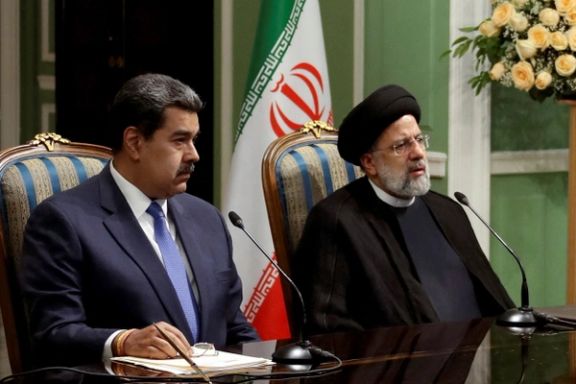
An Iranian official says that Venezuela has agreed to provide one million hectares of agricultural land for Iran’s overseas cultivation projects to secure food.
Announcing the agreement last week, Ali Rezvanizadeh said Venezuela can provide a better opportunity than Brazil and Russia for Iran’s overseas agricultural projects, including growing crops of soy beans and corn.
Tehran and Caracas last month announced a 20-year cooperation plan in the fields of oil, refining, petrochemicals, defense, tourism and culture, and agriculture during President Nikolas Maduro’s visit to Iran.
Details of the agricultural agreement have not been announced and it is not clear whether Caracas has agreed to the investment of the Iranian government or its private sector.
Masoud Daneshmand, former chairman of Iran Economy House, a private sector think tank, however, says Iranian investment in production of crops such as corn and soya beans in Venezuela is not economically viable due to the very long distance between the two countries and the high cost of transportation.
Experts say the biggest advantage of overseas cultivation for Iran is preserving its precious water resources. Iran’s agriculture uses around 85 percent of all available water resources. It would also potentially contribute to the country’s food secuirty, a great concern of Supreme Leader Ali Khamenei who has been an ardent promoter of agricultural self-sufficiency over the past three decades.
"Although there is shortage of water, God willing, the same amount of rainfall that our country has will be enough for [producing enough] to feed a population four times bigger than its current population and to make the country need less from others," he said in a speech in October 2000. In two other speeches in July and August 2001, Khamenei argued that self-sufficiency in basic products such as wheat and rice should be the main goal in agriculture.
Although Iran produces a wide variety of agricultural products, the sector has been battling with serious drought and inadequate water resources for years which has given rise to water tension in some areas.
According to Rezvanizadeh, Iran requires 7 million hectares of overseas agricultural land to ensure its food security, but Iranian investments have been on a much smaller scale so far.
The private sector investors are mainly driven by higher profit margins in their overseas cultivation projects. According to Rezanizadeh, of the 30 million tons of all agricultural products imported, only 7 percent comes from overseas cultivation projects. This includes investment in crops such as bananas and other exotic fruit which have a much higher profit margin than strategic crops such as wheat, corn, rice, and oilseeds.
Iran imports around 90 percent of all oilseeds such as rapeseed and soya beans and around 30 percent of the rice used in the country. The country is also a huge importer of corn and barley for animal feed.
Investment in overseas agricultural projects also requires financial measures such as bartering agreements to circumvent the obstacles in international banking resulting from US sanctions.
Some other countries, officials say, have agreed to provide agricultural land for Iranian projects on a much smaller scale. Russia recently offered to provide 100,000 hectares of for Iran’s projects, the official news agency (IRNA) reported Sunday. The report said this is only around 0.8 percent of all land under cultivation in Iran (12 million hectares).
The United States and China are among the countries with the most extensive overseas agricultural production. Iran’s southern neighbors, the United Arab Emirates and Saudi Arabia, have also invested heavily in agriculture in Africa and some Asian countries in the past decade.
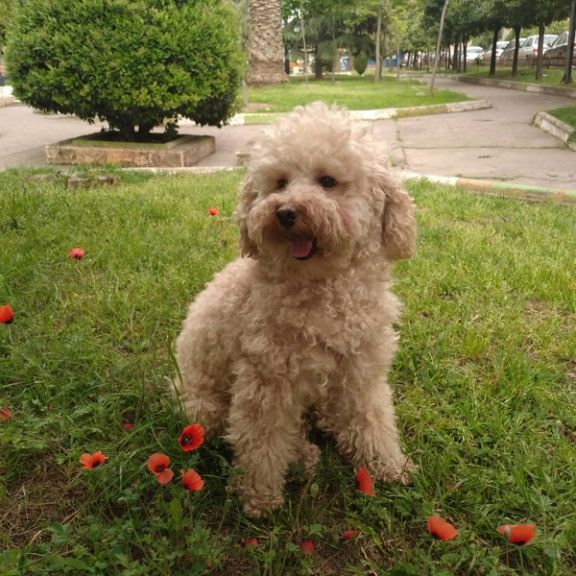
Iran’s parliament is about to pass a law which will obligate anyone who wants to keep a dog as a pet to apply for a special permit from some special committees.
Mojtaba Zonnour (Zolnour), a member of parliament’s foreign policy and national security committee, said on Saturday that if the so-called "Protection of public rights against dangerous animals" bill is approved, applicants for keeping dogs should request an official permit from the committees, which will be comprised of representatives of the prosecutor’s office and other government agencies such as the governors’ offices and municipalities.
The hardliner lawmaker added that these committees will review the conditions of the applicants to issue the necessary permits.
The representative of the religious city of Qom noted that the security and military apparatus of the Islamic Republic, including the police, the Intelligence Ministry and the Revolutionary Guards were involved in devising the outlines of this plan.
The parliament proposed the legislation late in 2021 by claiming a dog had killed children in a Tehran park. But in fact, the real reason for Iran’s conservatives is that keeping dogs is a symbol of Westernization, which they try to prevent. Although the bill names all kinds of pets, from dogs and cats to turtles, snakes, hamsters, rabbits and even crocodiles and monkeys, the main concern of parliamentarians is dogs, since dogs are considered impure in Islam.
Keeping dogs, always common in Iran’s rural areas and on farms, has only in recent years become popular in urban areas despite occasional police crackdowns.
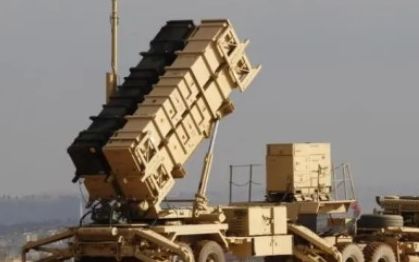
Tehran has warned regional Arab countries over a plan to launch an air defense system with the United States and Israel to confront Iran's missiles and drones.
Nour News, a website affiliated with the secretary of Iran's Supreme National Security Council (SNSC), Ali Shamkhani, said on Sunday that “the creation of a joint defense pact in the region by the US with participation and hidden management of Zionists is a threatening act.”
The United States said July 7 it is working to advance a partnership for air defense among Middle East allies to counter the growing missile threat from Iran.
Just before President Joe Biden’s trip to the region July 13, and his meeting with Saudi Arabia’s King Salman and visit to Israel, National Security Council Coordinator for Strategic Communications, John Kirby speaking of the Middle East said, “What happens over there definitely affects us here at home.”
The plan to set up coordination between air defenses of Saudi Arabia, Israel, the United Arab Emirates and other allies goes back months, as The Wall Street Journal reported in June that a secret meeting took place between top military officers of the countries involved in Sharm El Sheikh, Egypt in March.
Representatives came from Israel, Saudi Arabia, Egypt, Qatar and Jordan.
“If the implementation of such plans threatens the security of Iran in any way, it will face initial decisive response to the nearest and most accessible targets,” it tweeted.
Late on Saturday, Iran’s Foreign Ministry spokesman also said the plan to establish the integrated air defense system was provocative and “the Islamic Republic of Iran considers it a threat to its own national security as well as regional security.”
"The US comes up with such ideas without having a correct understanding of the region’s realities, and only with the purpose of fueling Iranophobia and creating division among the regional countries," said Naser Kanani.
Iran has been calling the United States the ‘great Satan’ and ‘world arrogance’ since the establishment of the Islamic Republic in 1979 and has skipped many opportunities to re-establish diplomatic ties after they were broken in 1980 when its followers took dozens of American embassy workers hostage in Tehran.
The foreign ministry spokesman added that “Any measure to pave the way for the increased presence and role of the United States in regional security mechanisms will have no other outcome but insecurity, instability, and spread of terrorism across the region.”
The US and Israel are laying the groundwork with Arab states to use Israeli technology to connect their air defense systems to combat Iranian drone and missile threats.
Early in June, the US Senate and House Abraham Accords Caucus unveiled a bipartisan, bicameral effort as a united front against what it said is Iranian aggression in the Middle East.
The legislation proposes that the Pentagon work with Israel to integrate air defenses of six GCC countries of Bahrain, Kuwait, Oman, Qatar, Saudi Arabia, and the United Arab Emirates with Egypt, Jordan, and Iraq with the aim of thwarting threats from Iran and Iranian backed-militias across the region.
The Deterring Enemy Forces and Enabling National Defenses (DEFEND) Act is a joint effort by Congress to develop a strategy for signatories of the Abraham Accords and other countries to combat Iranian destabilizing activities threatening peace and security in the Middle East.
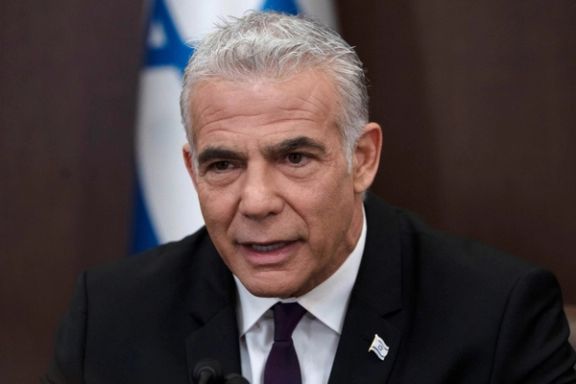
Israeli Prime Minister Yair Lapid said on Sunday that Iran’s nuclear case should return to the UN Security Council and sanctions mechanisms should be activated at full force.
At a weekly Cabinet meeting, Lapid said, “Yesterday, it was revealed that Iran is enriching uranium in advanced centrifuges in complete contravention of the agreements it has signed. The international response needs to be decisive.”
He also reiterated that “Israel reserves political and military freedom of action in fighting the Iranian nuclear program.”
Appealing to Middle Eastern Sunni Muslim countries to engage in steps of rapprochement with Israel, he said, "Israel extends a hand to the countries of the region and calls to change history for the sake of our children.”
About President Joe Biden’s upcoming visit to Jerusalem, slated for Wednesday, Lapid said it “will focus first and foremost on the issue of Iran.” “Israel will not stand idly by while Iran tries to attack us. Our security services know how to reach anyone, anywhere -- and they will do just that. We will discuss with the president and his team expanding security cooperation against all threats.”
Biden’s tour to the Middle East also includes a stop in Saudi Arabia, which is reportedly considering a joint three-way meeting with the United States and Israel either during or after Biden's visit.
The White House’s National Security Council spokesman John Kirby said on Thursday “greater collaboration” on issues such as air defense, particularly with regards to countering Tehran, would be also on Biden’s agenda.
The US and Israel are seeking to lay the groundwork for a security alliance with Arab states that would use Israeli technology to connect their air defense systems to combat Iranian drone and missile threats.
The middle-aged woman waved her headscarf as she was walking in a main square of the city of Tonekabon – formerly known as Shahsavar -- in Mazandaran province, shouting “freedom” and police forces sought to detain her by force as she was screaming “do not touch me!”
In a rare scene in Iran where people are normally afraid of law enforcement forces, citizens of the city gathered around the police car, immobilized it, and released the woman.
Authorities this year named the 12th of July as Hijab and Chastity Day and are planning state-sponsored rallies at stadiums and other places to promote the Islamic notion of the hijab (cover) for women. On the same day, women activists have their own plans to protest by taking off their hijab.
The Islamic Republic has launched an extensive campaign this year against women they call ‘bad-hijab’. In addition to arrests by the ‘morality police’ on the streets, some officials have ordered extra measures, including to government offices, banks, and public transportation to withhold service to ‘bad-hijab’ women.
The so-called morality police have also started patrolling medical and academic centers in some cities to enforce compliance with the Islamic dress code.
President Ebrahim Raisi on July 6 called lack of compliance with hijab rules “an organized promotion of [moral] corruption in Islamic society.”